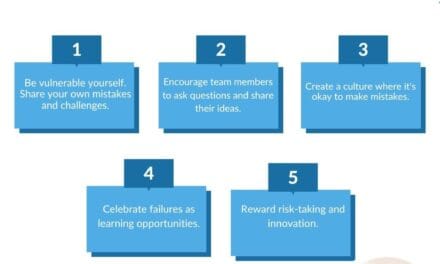In an era where technological advancements occur at lightning speed, the demand for effective leadership has never been greater, making leadership coaching for technology executives essential. According to a recent survey, organizations with strong leadership development programs are 2.5 times more likely to be successful in achieving their business objectives. As technology leaders face increasingly complex challenges—from rapid innovation cycles to the need for strategic decision-making—the right coaching can provide the critical support necessary for navigating these turbulent waters. This blog will explore the transformative benefits of leadership coaching specifically tailored for technology executives and how it can drive both personal and organizational growth.
Understanding the Need for Leadership Coaching in Technology
The landscape of the technology industry is rapidly evolving, presenting unique challenges that demand effective leadership. As digital transformations accelerate and market dynamics shift, technology executives find themselves navigating complexities that require not only technical expertise but also adaptive leadership skills.
Evolving Challenges in the Tech Industry
Technological advancements bring about significant changes, and leaders must be prepared to address issues such as:
Rapid innovation cycles
Increased competition from emerging startups
The need for collaboration across diverse teams
Cybersecurity threats and data privacy concerns
These challenges highlight the necessity for reliable and effective leadership. Without it, organizations risk stagnation and loss of direction.
The Importance of Adaptive Leadership Styles
In such a fast-paced environment, traditional leadership styles may no longer be sufficient. Executives must be equipped to:
Embrace change and foster a culture of innovation
Make data-driven decisions quickly
Communicate effectively with both technical and non-technical stakeholders
Inspire and motivate teams to achieve shared goals
This is where leadership coaching for technology executives becomes invaluable. It provides tailored support that addresses these modern-day challenges, empowering leaders to thrive in their roles.
Common Pain Points for Technology Executives
Technology executives often grapple with various issues, including:
Isolation at the top: Many leaders feel they lack a sounding board for their ideas.
Balancing strategic vision with operational demands: Executives must juggle numerous responsibilities.
Talent retention: Keeping skilled professionals motivated and engaged is often a challenge.
Understanding these pain points is crucial for designing effective coaching programs that can help executives overcome hurdles and lead with confidence.
For more insights on leadership in technology, explore resources from established organizations like McKinsey & Company.
What is Leadership Coaching for Technology Executives?
Leadership coaching for technology executives is a tailored development process designed to enhance the skills, mindset, and effectiveness of leaders in the tech sector. Unlike traditional training programs, coaching is a collaborative and personalized approach focused on individual needs and organizational goals.
Defining Leadership Coaching
Leadership coaching involves one-on-one sessions where executives work closely with a trained coach to identify areas for growth, set objectives, and develop strategies for achieving their goals. This form of coaching is characterized by:
Personalization: Every coaching experience is unique and caters to the specific challenges faced by technology leaders.
Structured Process: Coaches employ frameworks that guide executives through their leadership journey.
Focus on Transformation: The primary aim is to create lasting change in leadership styles and effectiveness.
Specific Benefits for Technology Leaders
Engaging in leadership coaching offers several advantages specifically for technology executives, including:
Enhanced Self-awareness: Executives gain insights into their strengths and weaknesses, fostering personal growth.
Improved Decision-Making: With discerning techniques, leaders learn to analyze situations critically and make informed choices.
Stronger Team Collaboration: Coaches help leaders develop skills to build high-performing teams, crucial in tech environments.
How Coaching Differs from Traditional Management Training
While management training often provides a set curriculum focused on processes or procedures, leadership coaching is highly individualized. Key differences include:
Interactive Learning: Coaching is a dialogue, whereas training presents information in a lecture format.
Real-time Application: Coaches help leaders apply concepts to actual scenarios within their organizations.
Ongoing Support: Coaching provides continuous feedback and encouragement, making it a dynamic, supportive process.
As technology evolves, the importance of effective leadership cannot be overstated. Engaging in leadership coaching for technology executives not only benefits individual leaders but also enhances overall organizational capabilities.
For more insights into the role of leadership in technology, check out resources from Deloitte.
Key Benefits of Leadership Coaching for Technology Executives
Investing in leadership coaching for technology executives yields numerous benefits that can accelerate both personal growth and organizational success. As technology leaders navigate an increasingly complex landscape, coaching can equip them with the skills and insights necessary to thrive.
Enhanced Decision-Making Skills
One of the most significant benefits of leadership coaching is improved decision-making. Technology executives often face high-stakes choices where the impact of their decisions can be profound. Through coaching, leaders can:
Develop critical thinking capabilities
Learn to assess risks more effectively
Utilize data and analytics for informed decision-making
This tailored approach enables leaders to weigh multiple perspectives and reach sound conclusions swiftly.
Improved Team Dynamics and Communication
Effective communication is vital for fostering collaboration within tech teams. Coaching helps leaders hone their interpersonal skills, resulting in:
Clear and concise messaging
Enhanced active listening abilities
Constructive feedback mechanisms
These improvements lead to stronger relationships among team members, reducing misunderstandings and boosting overall productivity.
Increased Innovation and Strategic Thinking
In today’s fast-paced technology sector, innovation is essential for remaining competitive. Coaches work with executives to cultivate a mindset open to new ideas and approaches. Benefits include:
Encouraging creative problem-solving
Identifying and capitalizing on emerging trends
Aligning innovation strategies with organizational goals
This not only enhances the executive's leadership capabilities but also drives forward the organization’s overall mission.
Greater Resilience in Facing Industry Challenges
The technology landscape is often unpredictable, requiring leaders to be resilient and adaptable. Leadership coaching provides:
Tools and techniques to manage stress and uncertainty
Strategies for navigating organizational change
Enhanced emotional intelligence for dealing with challenges
By building resilience, executives are better prepared to lead their teams through periods of transformation and disruption.
Through these key benefits, leadership coaching for technology executives proves invaluable in developing effective, adaptive leaders capable of steering their organizations toward success. For further reading on enhancing leadership skills, visit Harvard Business Review.
The Transformative Approach to Leadership Coaching
Leadership coaching for technology executives is rooted in a transformative approach designed to unlock the potential of leaders while aligning with their unique challenges and organizational objectives. This method recognizes that each executive brings distinct experiences and perspectives to the table, necessitating a customizable coaching plan.
Overview of Coaching Methodologies
There are various methodologies employed in coaching, each tailored to meet the specific needs of technology executives. Some popular coaching frameworks include:
GROW Model: Focuses on setting Goals, understanding the current Reality, exploring Options, and defining the Will to act.
Co-Active Coaching: Emphasizes the partnership between the coach and the executive to foster growth and self-discovery.
Situational Leadership: Guides leaders in adapting their style based on the developmental levels of their team members.
By leveraging these methodologies, coaches help executives gain clarity and direction in their leadership journey.
Personalization in Coaching Programs
A hallmark of effective coaching is its personalized nature. Coaches work closely with technology executives to create a tailored experience that incorporates:
Individual Assessments: Identifying strengths, weaknesses, and leadership styles to inform the coaching process.
Goal Setting: Establishing specific, measurable, and relevant goals that align with both personal aspirations and organizational objectives.
Regular Feedback: Continuously assessing progress and adjusting strategies to meet evolving challenges.
This customization allows executives to harness their strengths while addressing areas for improvement.
The Role of Thinking Styles in Effective Leadership
Thinking styles greatly influence how technology executives approach problems and make decisions. Leadership coaching incorporates strategies to:
Recognize individual and team thinking styles
Encourage diverse perspectives to foster innovation
Develop strategies that leverage different styles for collaborative success
Understanding and applying varying thinking styles not only enhances leadership effectiveness but also cultivates a more inclusive team environment.
By utilizing a transformative approach that combines these elements, leadership coaching for technology executives empowers leaders to navigate their unique challenges and drive organizational success. For more insights into effective leadership strategies, check out resources from Forbes.
What to Expect from a Leadership Coaching Program
Engaging in leadership coaching for technology executives can be a transformative experience. However, understanding what to expect from the coaching process is vital to maximizing its benefits. This section outlines the structure and key components of a typical coaching program.
Structure and Duration of Coaching Sessions
Leadership coaching programs are typically structured to provide flexibility while ensuring comprehensive support:
Session Frequency: Meetings may occur weekly or bi-weekly, depending on individual needs and availability.
Session Length: Each coaching session usually lasts between 60 to 90 minutes, allowing adequate time for discussion and reflection.
Duration of Program: A typical coaching engagement may span three to six months, although this can vary based on specific goals and progress.
This structured approach ensures that executives receive the necessary support throughout their development journey.
Setting Goals and Measuring Progress
A crucial aspect of leadership coaching is the focus on goal-setting and measuring success. This involves:
Defining Clear Objectives: Executives work with their coach to establish specific, measurable goals that align with both personal development and organizational priorities.
Creating Action Plans: Coaches help executives outline actionable steps to achieve their goals, fostering a sense of direction and purpose.
Regular Progress Assessments: Ongoing evaluations at designated intervals help track development and adjust objectives as needed.
This iterative process not only keeps executives accountable but also highlights areas for further growth.
Commitment and Accountability in the Coaching Journey
Success in leadership coaching hinges on the commitment of both the executive and the coach. This relationship is built on accountability, which can involve:
Homework Assignments: Coaches may assign tasks or reflections between sessions to encourage continuous engagement.
Check-in Conversations: Regular discussions focused on progress and challenges provide opportunities for feedback and adaptation.
Alternative Support Resources: Coaches may recommend additional resources, such as workshops or readings, to complement the coaching experience.
By fostering accountability, leadership coaching helps technology executives stay committed to their growth and empowers them to achieve lasting change in their leadership practices.
Participating in a leadership coaching program tailored specifically for technology executives can lead to profound enhancements in leadership skills and team dynamics. For further guidance on effective leadership practices, visit PwC.
Choosing the Right Leadership Coach for Technology Executives
Selecting the right leadership coach is crucial for technology executives seeking to enhance their leadership capabilities. A well-matched coach can make all the difference in achieving meaningful growth and transformation. Here are several factors to consider when making this important decision.
Qualifications and Experience to Look For
Not all coaches are created equal, so it’s essential to evaluate their qualifications and experience. Key aspects to consider include:
Coaching Credentials: Look for coaches who hold certifications from recognized organizations, such as the International Coach Federation (ICF) or similar bodies.
Industry Experience: A coach with a background in technology or relevant fields can better understand the unique challenges you face as an executive.
Track Record of Success: Inquire about the coach's experience working with other technology executives and the outcomes achieved.
These qualifications can provide assurance that the coach has the knowledge and skills needed to guide you effectively.
Importance of Industry Relevance and Expertise
Given the specific challenges technology executives face, it’s important to find a coach who understands the industry landscape. Benefits of industry-relevant coaching include:
Insightful Industry Knowledge: A coach familiar with the technology sector can offer tailored strategies that resonate with current trends and best practices.
Network Access: Coaches with industry connections can facilitate networking opportunities and introduce you to valuable resources.
Understanding of Technical Challenges: Coaches with hands-on experience can provide relevant advice on navigating both technical and management hurdles.
This relevance can significantly enhance the coaching experience and outcomes.
Evaluating Coaching Style and Approach
Each coach has a unique style that can impact how well they connect with you. When selecting a coach, consider:
Coaching Methodology: Understand the approach the coach uses (e.g., directive vs. non-directive) and choose one that aligns with your preferences.
Compatibility: Schedule introductory sessions to determine whether you feel comfortable with the coach's communication style and personality.
Adaptability: Look for a coach who tailors their approach to your specific needs, rather than adhering strictly to a one-size-fits-all methodology.
Finding a coach with a compatible style can lead to a more productive and supportive coaching relationship.
By carefully considering these factors, technology executives can find a leadership coach who is well-suited to support their development and help them thrive in their roles. For more insights on leadership coaching, check out Gallup.
Conclusion: Investing in Your Leadership Journey
Engaging in leadership coaching for technology executives is not just an investment in one’s personal development; it is also a strategic business decision that can yield significant returns for organizations. This coaching experience equips leaders with the skills, insights, and confidence needed to navigate the complexities of the technology landscape effectively.
The Long-Term Impact of Effective Leadership Coaching
The benefits of leadership coaching extend far beyond immediate improvements in performance. Over time, effective coaching can lead to:
Sustainable Leadership Growth: Executives who embrace coaching often experience long-lasting changes in their leadership style and effectiveness.
Enhanced Organizational Culture: As leaders develop better communication and collaboration skills, they contribute to a healthier workplace environment.
Increased Innovation and Competitive Advantage: Coaches empower technology leaders to think strategically and foster innovation, resulting in improved business outcomes.
By investing in leadership coaching, technology executives position themselves—and their organizations—for long-term success.
Encouragement to Explore Coaching Options
As the technology sector continues to evolve, the demand for adaptable and effective leadership is more critical than ever. Executives are encouraged to explore various coaching options that align with their goals and organizational needs. Consider the following steps:
Research Potential Coaches: Look for professionals with proven experience in technology and relevant qualifications.
Assess Personal Goals: Clearly define your leadership development objectives to find a coach who can align with these goals.
Engage in Open Dialogue: Don’t hesitate to reach out and ask questions to ensure the coaching approach resonates with you.
By taking these proactive steps, technology executives can embark on a transformative journey that enhances their leadership capabilities and drives meaningful change within their organizations.
For further insights and resources on leadership development, visit LinkedIn.
What is leadership coaching for technology executives?
Leadership coaching for technology executives is a personalized development process that helps leaders enhance their skills, address specific challenges, and align their leadership style with organizational goals. This coaching approach focuses on individual needs and promotes both personal growth and team effectiveness.
How long does a typical leadership coaching program last?
The duration of a leadership coaching program can vary based on individual goals and the complexity of challenges being addressed. Generally, coaching engagements last between three to six months, with sessions taking place weekly or bi-weekly. This structure allows for sufficient time to set goals, implement changes, and track progress effectively.
What can I expect during the coaching sessions?
During coaching sessions, technology executives can expect a collaborative environment where they work closely with their coach to define objectives, develop action plans, and reflect on experiences. Sessions typically include discussions on leadership styles, decision-making processes, team dynamics, and strategies for overcoming obstacles.
How is leadership coaching different from traditional training programs?
Leadership coaching is distinct from traditional training programs in that it is highly personalized and focused on individual experiences, challenges, and aspirations. Traditional training often follows a set curriculum and is more instructional in nature, while coaching involves interactive dialogue and ongoing support tailored to the executive's unique needs.
How do I choose the right leadership coach?
Choosing the right leadership coach involves considering several factors, such as the coach's qualifications, industry experience, and coaching style. It's essential to evaluate their background to ensure they understand the specific challenges of the technology sector and have a proven track record of helping leaders achieve their goals. Introductory sessions can also help assess compatibility and determine if their approach aligns with your expectations.





